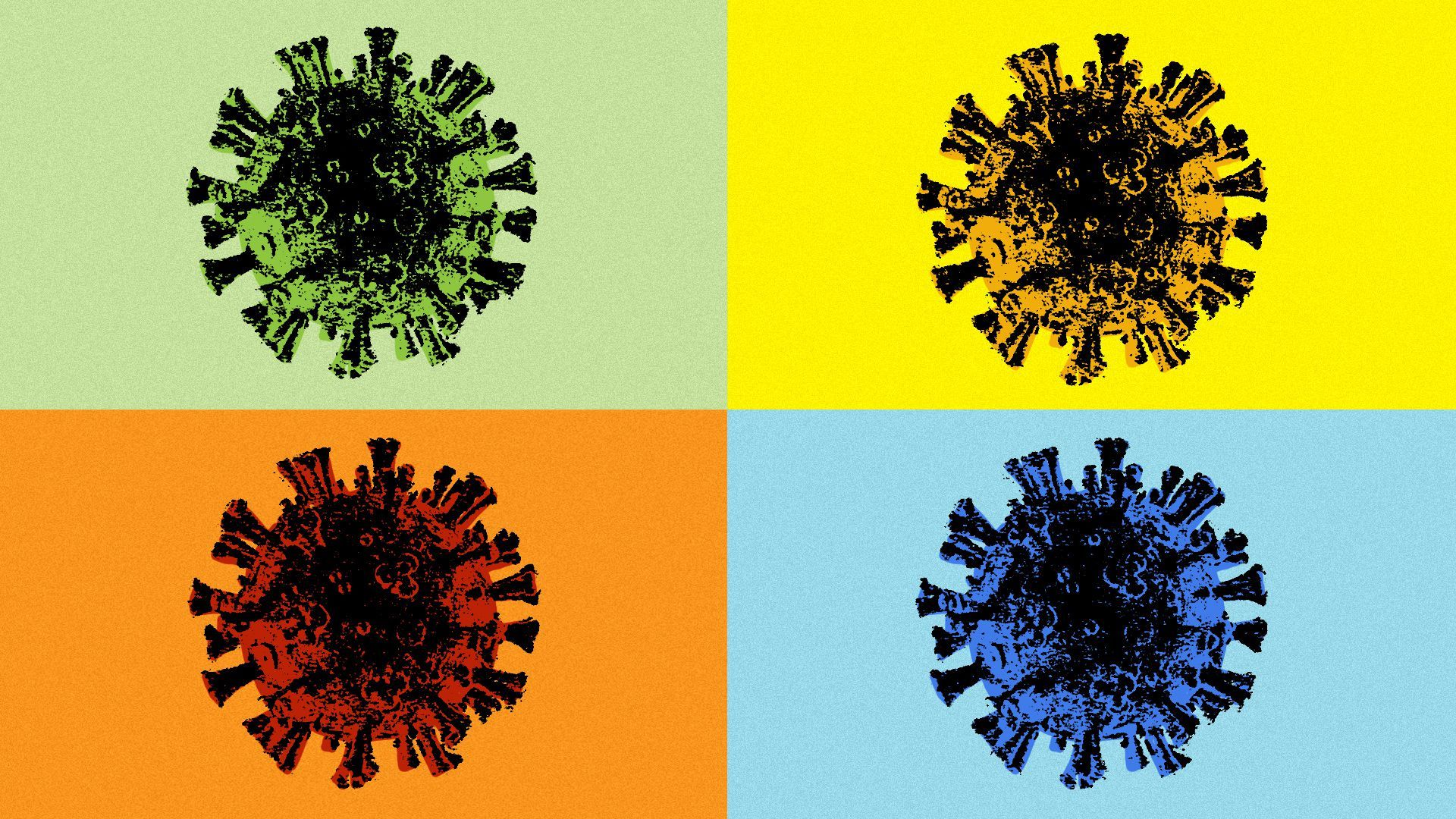How the little-known B and T cells can protect against COVID variants
Add Axios as your preferred source to
see more of our stories on Google.

Illustration: Aïda Amer/Axios
The body's long-term immune responses help to defend against emerging coronavirus variants even as antibody immunity is waning in people who are vaccinated or who've had prior COVID-19 infections.
The big picture: Variants are testing the success of the COVID-19 vaccines, as antibody levels typically drop after peaking from infection or vaccination.
- The immune system generally uses neutralizing antibodies to fight against initial infection. Memory B cells, which have long-term protective capability, and T cells work to minimize the severity of disease.
- Prior infection or vaccination can trigger the body's range of responses.
Driving the news: "There's a considerable degree of immune evasion" by the newly arrived Omicron with its 50-plus mutations, NIAID Director Anthony Fauci tells Axios. Combined with the Delta variant, "it's very important" to get boosted when possible to reconstitute antibody levels.
What's happening: The Delta variant is currently dominant and causing devastation in the U.S., but Omicron's mutations are concerning as they increase the virus' transmissibility and up its ability to escape immune protection from monoclonal antibodies, convalescent plasma and vaccine-induced antibodies, Fauci says.
- While antibodies circulate in the blood and may not be at the right place at the right time, T cells can lodge themselves in mucosal and peripheral sites, where they are "armed and dangerous and ready to fight off this bug," says immunobiologist Jennifer Lund of Fred Hutchinson Cancer Research Center.
Omicron is not able to completely elude killer T cells in previously infected or vaccinated people, per early data not yet peer reviewed, says NIAID staff scientist Andrew Redd, currently in South Africa to study the coronavirus there.
- "Omicron has led to a fourth wave here in South Africa. However, at least as of right now, that wave is behaving differently than the previous three waves," Redd tells Axios.
- Right now, South Africa is seeing an "explosive amount of cases" primarily from Omicron, but hospitalizations and deaths are lower than prior COVID waves there. "We don’t know if this pattern will hold, but hopefully it will," he says, adding that the next few weeks will demonstrate how well herd immunity can halt Omicron in South Africa.
Between the lines: The focus of research on immune response from vaccines appears to have shifted toward the role of T cells as "another line of defense that might hold promise," says Lund, who c0-authored a recent study in Science Advances that compared immune responses from COVID to flu and RSV.
- Harlan Robins, chief scientific officer at the company Adaptive Biotechnologies, says "as opposed to the flu, the T cell response [from SARS-CoV-2] sort of picked up the slack and is really providing strong protection, even in the case where we've lost the antibody response almost entirely."
Yes, but: Future variants could evade T cells primed by vaccines.
- Vaccine makers should be required to measure T cell response to show if the vaccinated have long-lasting robust protection even when the virus changes, says Robins, whose company has FDA's emergency use authorization for its T-Detect COVID test.
What to watch: Lund is urging development of a nasal vaccine for SARS-CoV-2 to "induce more antibodies in the nasal passages, where the virus first comes into contact with the host, and improve protection."
- Fauci and other NIH scientists today urged work on a universal coronavirus vaccine to stymie the threat of future coronavirus pandemics.
Go deeper:
